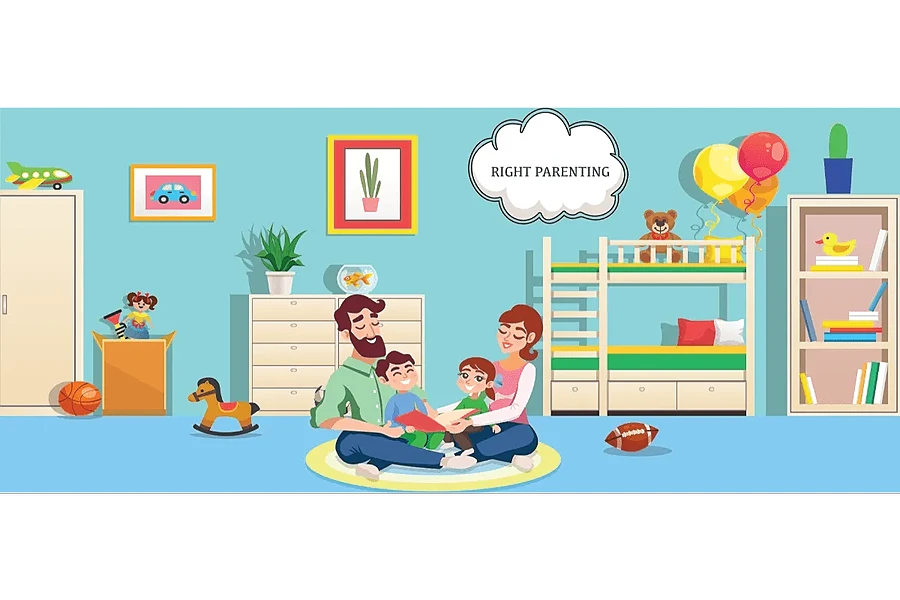Confirm Baby's Age Group
Baby's Age is Less Than 3 Years
Book Demo Session
Only 4 Spots Left!
Only 4 Spots Left!

NOV 18, 2020
The mixture of genetic predispositions and the social and physical environment influences the growth of the central nervous system. Adequate development of the brain relies on both prenatal and early postnatal experiences and is the product of the ongoing relationship between evolution and the life context.
One of the key factors influencing the cognitive development of children in early childhood is the family environment, which involves both treatment and stimulation offered by parents to children and the family's socio-economic status. Interaction with parents is important during the first years of life to ensure sufficient psychosocial growth of children and the lack of stimulation is correlated with early social and cognitive disadvantages. The socioeconomic status of parents is a multidimensional construct based on several parameters, such as family income, material resources, education and jobs, as well as related characteristics of the community and family. The impact of socioeconomic status are well known on children's cognitive growth. There is an elevated risk of decreased psychological well-being and emotional and cognitive growth for children who grow up in families with diminished socioeconomic status. Through several different mediators, such as prenatal influences, parental care, cognitive stimulation, diet, stress, toxins and drug exposure, socioeconomic status may influence neural growth.
Maternal IQ is also correlated with neurocognitive growth in infants. It has indicated both a direct and indirect effect of maternal intelligence on child IQ, the indirect influence mediated by family income and home climate. Other evidence indicates that in low- and high socioeconomic status families, the genetic impact on intelligence is comparable and that the greater differences in IQ in lower socioeconomic status families are the result of shared experiences of children.
The independent and positive effect of socioeconomic status, maternal IQ and home environment on child cognitive development has been shown in a recent newborn cohort study, but so far only a limited number of studies have assessed this dynamic relationship, providing adequate and detailed adjustment for parental and environmental factors. Moreover, more insightful findings may be obtained from the prospect of independently evaluating the various fields of child neurocognitive growth (cognitive, linguistic and motor).
In the early home setting, the quality and amount of stimulation and help available is a key indicator of healthy cognitive and socio-emotional development. The home environment includes both relational factors, including maternal warmth, sensitivity and responsiveness to the infant, such as the quality of parenting, as well as material factors, such as family organisation and the availability of resources and learning materials. The home setting is a significant indicator of child growth and can account for differences in the outcomes of children. In low socioeconomic status households, the standard of the home setting is always lower.
The study at the Longitudinal Study of Australian Children (LSAC) identified four broad dimensions of children’s home learning environments:
Home activities, including teaching a song to the boy, playing games, and doing activities in arts and crafts;
The number of days a week read to the infant by the primary caregiver or an adult in the family;
The number of children's books at the home of a child; and
Out-of-home games, such as visiting a library or zoo, picnics, and sports events.
Most families have often engaged their children in activities across these dimensions; however, various trends have been found across various social classes. There were less learning opportunities for families in low socioeconomic status households living in deprived communities, or with mothers speaking a language other than English at home.
The study also showed that at age 2-3 years, a stimulating home learning atmosphere appeared to be similarly beneficial to the learning outcomes of children regardless of the gender, socio-economic status or family type of the child. However, while higher levels of home-based activities had a major impact on the numeracy skills of children from English-speaking families, they did not have the same impact on children from non-English - speaking families.
Join Master Positive Parenting for baby's right future.
We have raised your request again, our team will reach you shortly on your registered number.
Our team will reach you shortly on your registered number.
We have raised your request again, our team will reach you shortly on your registered number.